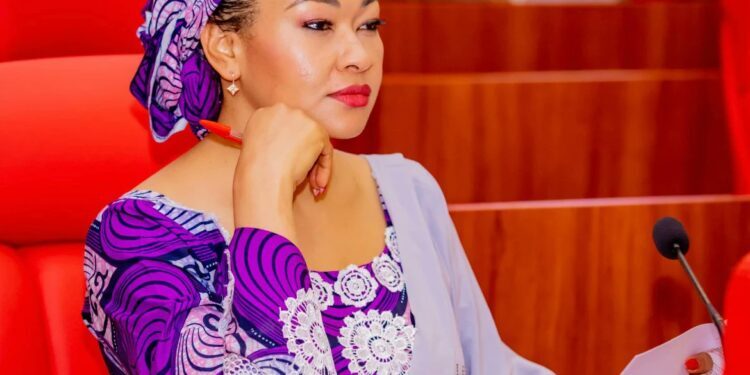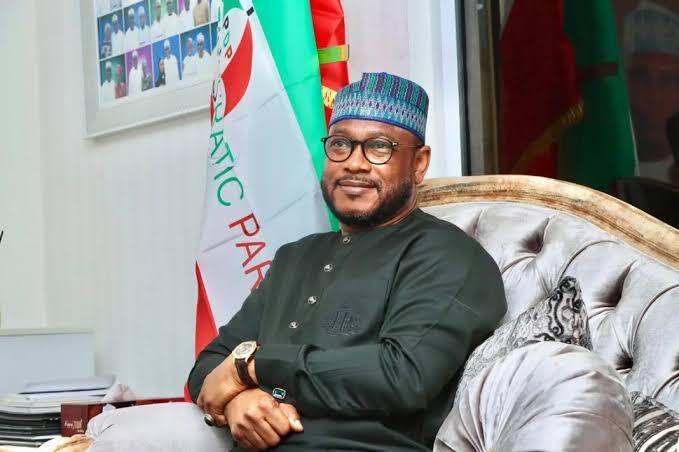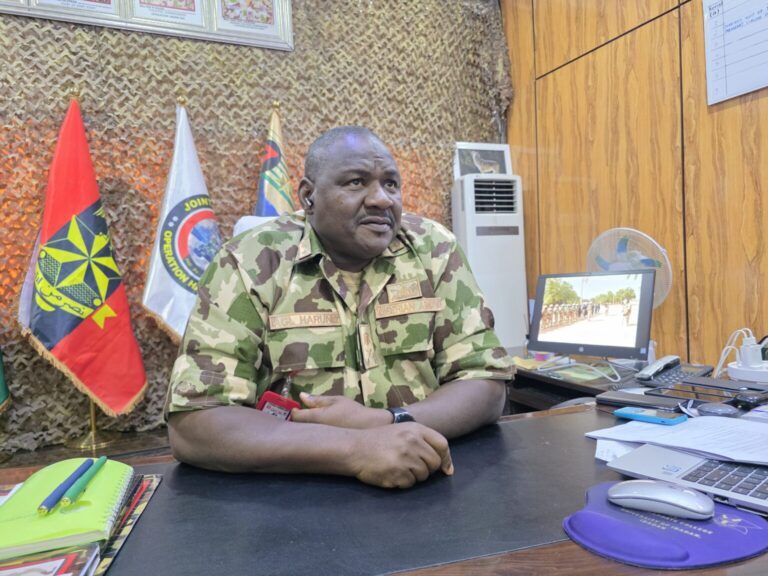By Jumai Ahmadu
It is no longer news that there was an altercation between Senator Natasha Akpoti-Uduaghan and the Senate President Godswill Akpabio, but what it underscores is how women in elective positions in Nigeria continue to face severe under-representation.
Senator Natasha Akpoti, who was almost suspended from parliament by the Senate President, is just one out of similar cases in the recent past. Sen. Ireti Kingibe and Sen. Remi Tinubu (now First Lady) all had bitter experiences at the upper chamber.
It is in the light of these awful experiences that Seat Reservation for Women Bill by the Deputy Speaker of the House of Representatives, Benjamin Kalu, becomes urgent to only boost gender parity, but to unlock national prosperity of which women are a critical segment of.
Nigerian women’s political engagement in Nigeria has quantitatively shown that there is grossly low levels of female election to the National Assembly. The issue of female electiveness is one of myriad of issues women face in Nigeria – poor economic power, discrimination, cultural and religious inhibitions as well as societal biases.
The very notion that the country’s political sphere since 1999 has not witnessed any seismic shift in terms of gender equity and parity rather has remained largely dominated by men despite several efforts by both government and the private sector to enhance women participation and representation in elective politics does not inspire confidence in terms of inclusion and diversity.
A statistical report in 2017 on women and men in Nigeria shows that representation of high-ranking government officials with decision-making powers is heavily lopsided in favour of men. The representation of women in the 9th Assembly is not a significant improvement from past Assemblies.
In 1999, sixteen (16) women were elected into the National Assembly with thirteen (13) in the House of Representatives and three (3) in the Senate. The total number increased to 25 in 2003 with twenty-one (21) in the House and four (4) in the Senate.
The highest number of women ever to be elected into the National Assembly is thirty (36) in 2007 with twenty-seven (27) in the House and nine (9) in the Senate. Since then, there has been a steady decline to thirty-two (32) in 2011, twenty-nine (29) in 2015 and seventeen (17) in 2019.
In the 9th National Assembly, there were eight (8) female Senators (7.3%) and thirteen (13) female Members of the House of Representatives (3.6%), which represents 4.5% of the entire Assembly.
The 10th Assembly has women occupying four (4) out of 109 seats (2.7%) in the Senate and 17 out of 360 seats in the House of Representatives (4.7%), which represents 4.2% of the 469-member Assembly.
Therefore, after seven general election cycles since 1999, the number of women in the Senate has dropped to what it was at Nigeria’s return to democracy in 1999.
It is thus significant to note that the cumulative percentage of women in the two chambers of Nigeria’s incoming 10th National Assembly is below 5%. It is also important to note that no woman was elected in 15 out of Nigeria’s 36 State Houses of Assembly following the state level general elections in March 2023.
With current figures for the 10th National Assembly, Nigeria shamefully places at the lowest neighborhood of the ranking of countries on women in public leadership especially African Parliaments.
The National Assembly must take action to support increase in the number of women represented in government by passing the specific Constitution Alteration bills to achieve this.
The Temporary Special Measures bill, with more than 80 other House of Representatives members co-sponsoring it, was debated but failed to pass in the 9th Assembly. It is instructive that women groups are continuing work on the bill in the current 10th National Assembly and needs to work harder not to lose this opportunity again.
Women’s lack of adequate participation in legislative processes has negatively impacted promotion and enforcement of their rights, and despite the low representation of women in the National Assembly, the bills sponsored by female legislators has had significant impact on the lives of all Nigerians. Men’s efforts, if any, to promote these rights are not sufficient, because they are not direct beneficiaries.
Structural biases and barriers to women’s political participation indicate that the few women who show active interest in politics are discouraged by factors that include prevailing gender stereotypes, cultural/religious reasons, unfavourable political environment, lack of financial capacity, electoral violence and restrictive party structures and processes, amongst others.
Political hurdles, socio-cultural issues such as patriarchy, religious dogma, and conventional views of women in politics and socio-economic hurdles such as low income, lack of resources, electoral processes and political party structures, have all been identified as barriers to women’s political engagement.
While women are making significant contributions to Nigerian politics, their representation in political and decision-making positions needs to be improved.
And 30 years after the Fourth World Conference on Women and adoption of the Beijing Declaration and Platform for Action (1995) we are nowhere near the 35% affirmative action.
Women groups plan to participate in the 69th Session of the United Nations Commission on the Status of Women Conference scheduled to hold March 10 to 21, 2025.
The main focus of the sixty-ninth session will be on the review and appraisal of the implementation of the Beijing Declaration and Platform for Action and the outcomes of the 23rd special session of the General Assembly.
It is therefore recommended that the country’s 35 per cent affirmative action for women’s representation in politics be codified into law. Having legislation that requires government at all levels to have at least 35 per cent representation of women in appointive public service positions will be a good way to engender greater participation of women in politics.
Considering the importance of their presence in governance, we urge women in public leadership to stand firm and continue representing their constituents. They should never ever lose their voice, but rather continue to stand strong in your commitment to citizens and prove that representation matters.
Dr. Jumai Ahmadu is the Acting Director, Reform Coordination and Service Improvement Department, of the Federal Capital Territory Administration.











